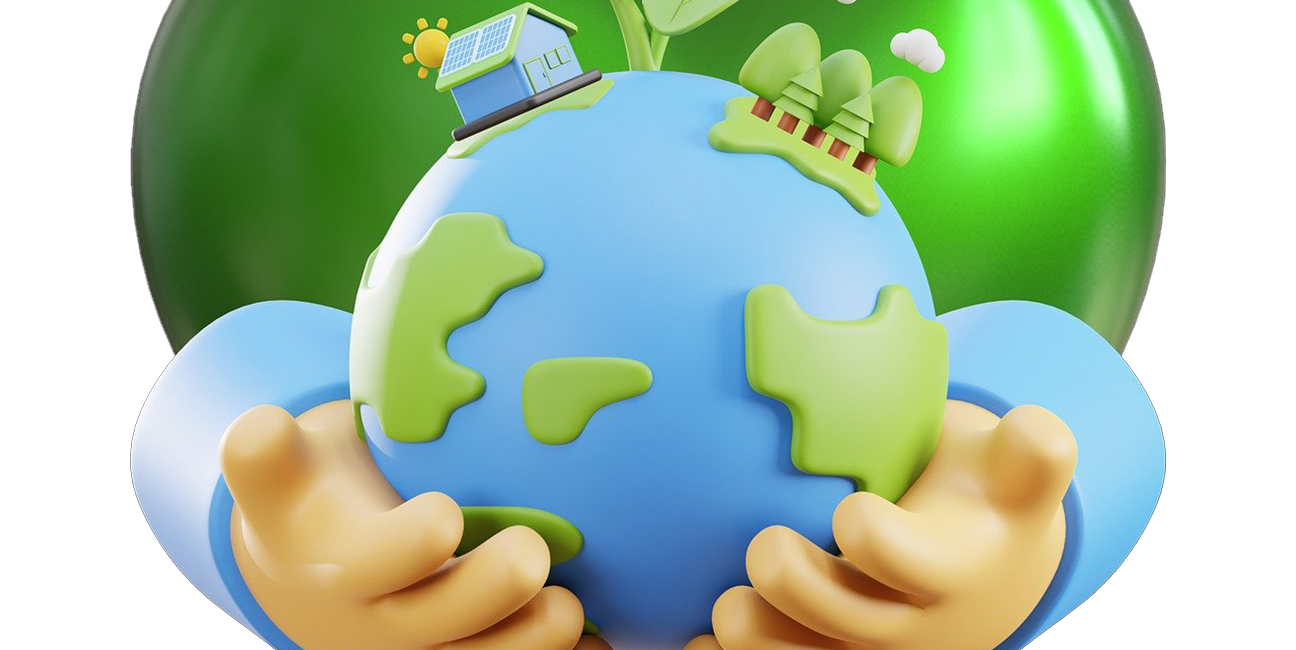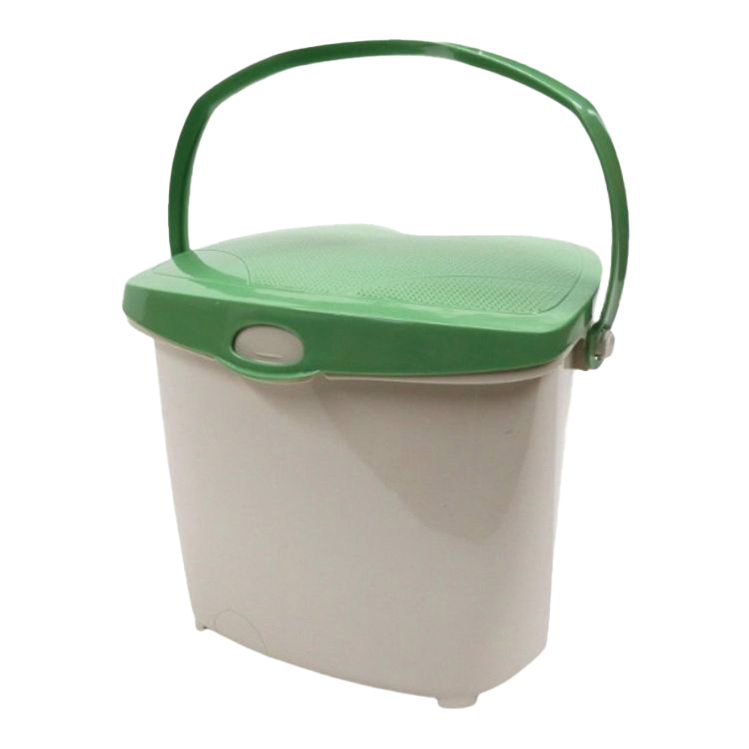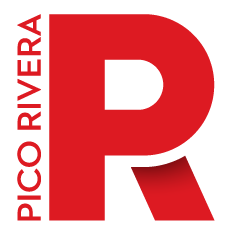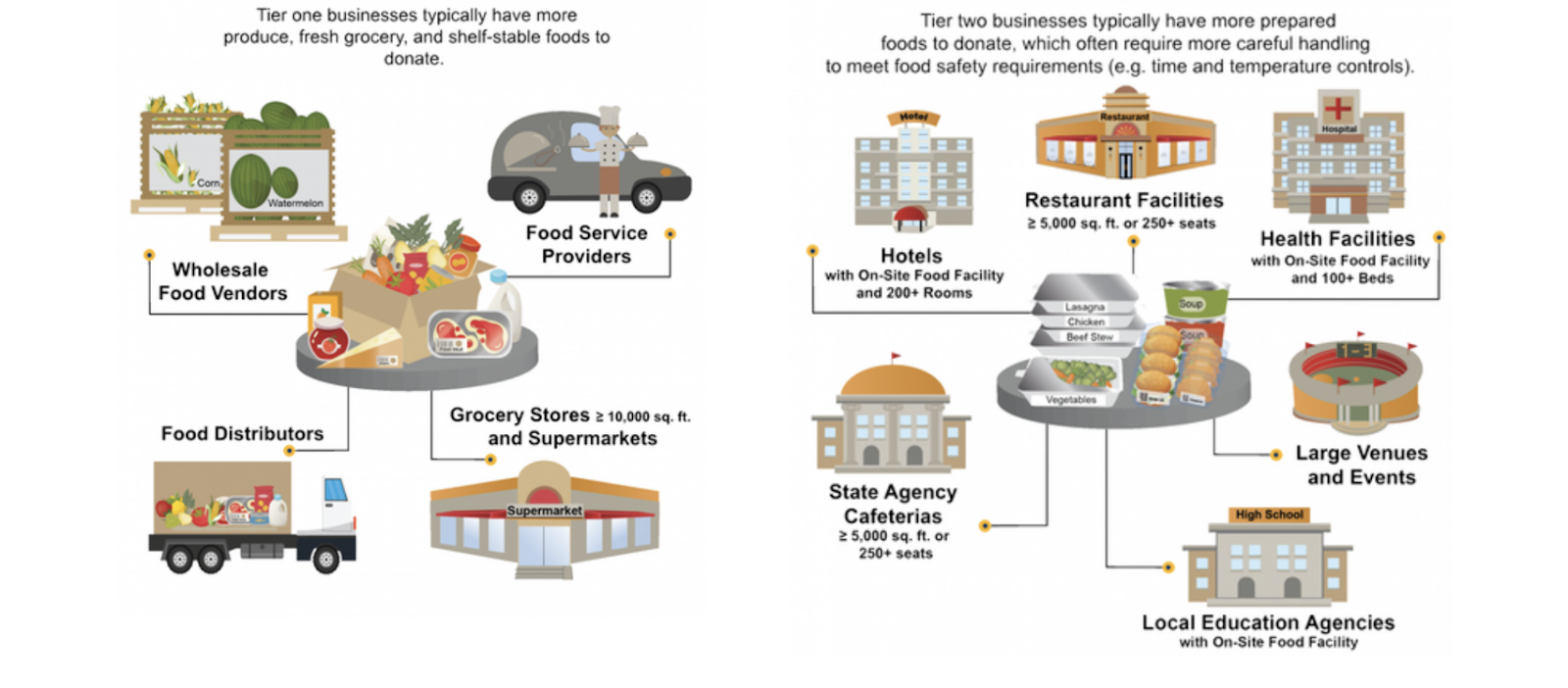
Organics Recycling
Build a Sustainable Future - One Scrap at a Time
Pico Rivera residents and businesses can reduce waste, cut harmful emissions and protect our environment by composting organic materials like food scraps and yard trimmings. Together, we all play a vital role in reducing our community’s carbon footprint and supporting California’s ambitious climate goals.
In Pico Rivera, the community is embracing a forward-thinking Climate Action and Adaptation Plan, centered around reducing methane emissions from organic waste decomposition in landfills. The City is committed to helping residents meet waste reduction goals, focusing on diverting organic materials from landfills and rescuing surplus edible food to address food insecurity.
Get an Organic Recycling Kitchen Pail Today!
Residents who do not yet have a compost pail for food scraps can pick one up at Pico Rivera City Hall (6615 Passons Boulevard) from 8 a.m. to 5 p.m., Monday through Thursday. Please bring proof of residency to receive a pail.
How You Can Participate:
Residents: Start separating food scraps and yard waste into your green bin. Organic recycling these materials prevents methane emissions and creates nutrient-rich soil.
Businesses: Collaborate with NASA Services, our waste hauler, to ensure your organic waste is properly sorted and collected. If your business generates surplus edible food, consider partnering with a local food recovery organization to help feed families in need.
These simple actions add up to a significant environmental impact. Reducing organic waste helps combat climate change, preserves natural resources, and builds a cleaner, healthier Pico Rivera.
What is SB 1383?
SB 1383 is a California law aimed at reducing methane emissions by cutting down on organic waste that ends up in landfills. Organic waste includes things like food scraps, yard waste, paper, and cardboard. When this waste breaks down in landfills, it releases methane, a powerful greenhouse gas.
Key Goals:
- Reduce organic waste disposal by 75% by 2025 (compared to 2014 levels).
- Recover 20% of edible food that would otherwise be thrown away and redirect it to people in need by 2025.
What does this mean for you?
The City of Pico Rivera has partnered with NASA Services to provide curbside organic waste collection services for residents and businesses! With this service, you will now separate household and commercial waste and recyclables into three carts, with organic waste placed in your green cart.
Curious about what is considered organic waste? Check out our Frequently Asked Questions.
Frequently Asked Questions
What is organic waste?
Organic waste is any material that is biodegradable and comes from either a plant or an animal. Biodegradable waste is organic material that can be broken into carbon dioxide, methane, or simple organic molecules.
What goes in the Organics/Green Waste Bin?
The following items should be separated by a clear plastic bag and included with the rest of organic waste: food scraps, paper, cardboard, coffee, coffee filters, tea bags, used paper napkins, paper plates, paper bags, paper containers, natural fibers (popsicle sticks, wooden chopsticks, toothpicks), Materials like yard scraps, Leaves and branches, flower and hedge trimmings, weeds and untreated wood can go directly into the green waste bin.
What does NOT go in the Organics/Green Waste Bin?
Paper containers with a plastic or wax coating, take-out boxes with metal that cannot be removed, clothing or textiles, pet waste and cat litter, wine corks, rocks and soil, diapers, cigarette butts and ashes, styrofoam, anything that does not break down naturally.
Why does food waste and organic waste need to be separated?
Landfills are the third largest source of Methane in California. Organic waste in the landfills emits 20% of the state’s methane, a climate super pollutant 84x more potent that carbon dioxide.
Where will organic waste go?
As California collects and recycles organic materials, local governments will be required to use the products made from this recycled organic material, such as renewable energy, compost, and mulch.
For example, organic waste will be used to curate healthy soil! Compost is a key to healthy soil, and healthy soil is critical to reducing carbon in the air.
Events & Resources
Did you know? You can get a FREE kitchen scraps food pail to collect food scraps from the City; pick up your free compost pail at City Hall anytime from 7:30 a.m. to 5:30 p.m., Monday through Thursday.
CleanLA.gov also provides free access to online content on composting.

3rd Party Hauler Information - Hauling Your Organic Waste
Legislative requirements
- Residents and businesses across California are required to do their part in reducing organic material in landfills by 75% and recover 20% of currently-disposed edible food for human consumption.
- Commercial businesses and public institutions that create food waste are classified as edible food generators and must meet the following guidelines.
- Edible food generators should donate all food that is fit for human consumption, regardless of appearance or age, including unspoiled packaged food that are past their “best by” or “freshest by” dates.
- Businesses are protected by California’s Good Samaritan Food Donation Act and the Federal Good Samaritan Food Donation Act from liability when donating food.
- When donating, edible food generators must keep the following records to maintain compliance:
- A copy of contracts or written agreements with each partnering food recovery organization or service.
- The name, address, and contact information of the food recovery organization or service.
- The types of food that will be donated.
- The established frequency of food donation(s).
- The quantity, in pounds, of food donated.
Complying with the City of Pico Rivera
- Contact a local food recovery organization or service and agree to a donation plan.
- Qualifying Organizations:
i. Margaret Aylward Center
- Qualifying Organizations:
- Donate all surplus edible food.
- Maintain up-to-date records of your donations on-site to demonstrate compliance with SB 1383.
- Businesses can easily find authorized donation recipients and maintain their compliance records with the Careit app.
Contact Us
Pico Rivera Office of Sustainability
6615 Passons Boulevard
Pico Rivera, CA 90660
(562) 801-4244
Sustainability@pico-rivera.org
Waste Hauler:
If you have any questions related to transition of carts or new service, please contact NASA at (888) 888-0388 or visit nasaservices.com/pico-rivera.
A New Way to Engage
6615 Passons Boulevard Pico Rivera, CA 90660
Phone Number: (562) 942-2000
City Hall is open Monday – Thursday
7:30AM to 5:30PM


